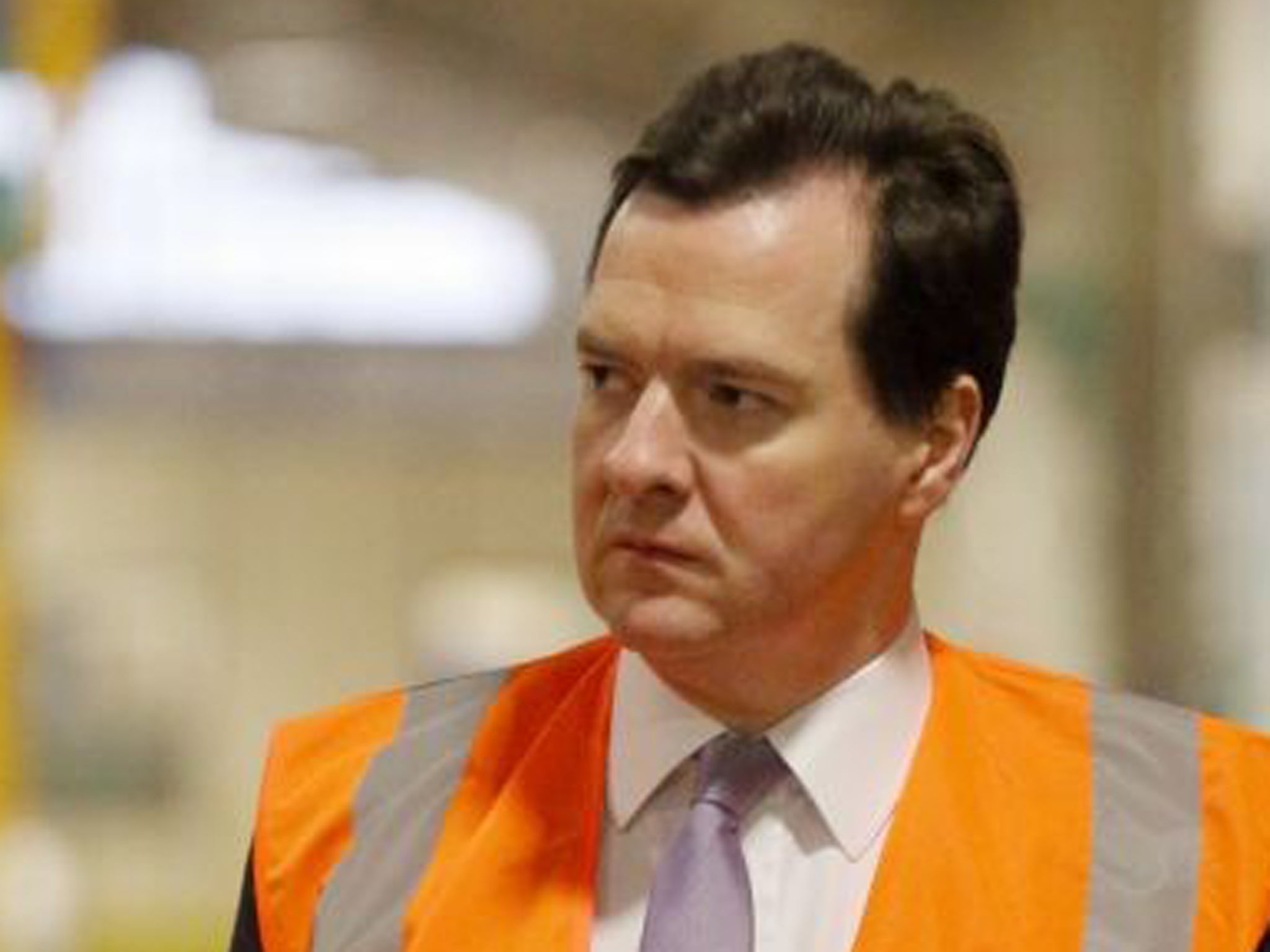Britain's loss of AAA credit rating a 'humiliating blow' to George Osborne, says Ed Balls

Your support helps us to tell the story
From reproductive rights to climate change to Big Tech, The Independent is on the ground when the story is developing. Whether it's investigating the financials of Elon Musk's pro-Trump PAC or producing our latest documentary, 'The A Word', which shines a light on the American women fighting for reproductive rights, we know how important it is to parse out the facts from the messaging.
At such a critical moment in US history, we need reporters on the ground. Your donation allows us to keep sending journalists to speak to both sides of the story.
The Independent is trusted by Americans across the entire political spectrum. And unlike many other quality news outlets, we choose not to lock Americans out of our reporting and analysis with paywalls. We believe quality journalism should be available to everyone, paid for by those who can afford it.
Your support makes all the difference.The Chancellor George Osborne has been accused of having suffered a “humiliating blow” after Britain was stripped of its AAA credit rating.
Ed Balls, shadow chancellor, said the announcement by Moody's downgrading the country's AAA credit rating was a "very, very bad moment" for Mr Osborne following the Chancellor's assertion that losing this status would be a humiliating blow.
"The Chancellor said this would be a humiliating blow and the first test of his policy was to avoid it, so clearly for him politically, it is a very, very bad moment," he told BBC Breakfast.
"I think economically, the credit rating decision itself makes no difference at all.
"What the credit rating agencies are doing though is reflecting the reality and the reality is an economy which is not growing, a deficit which is getting bigger, families in real stress and a Government which is ploughing on regardless with a plan which is not working - saying 'the medicine is not working, let's increase the dose of the medicine' that is completely crazy economics."
The attack by the shadow chancellor came after Mr Osborne said the coalition was determined to stick by its plan for economic recovery after the rating was lowered by a notch to AA1.
Moody's warned that "subdued" growth prospects and a "high and rising debt burden" were weighing on the economy.
Mr Osborne said the loss of the gold-plated status did not mean the Government should change course.
"We have a stark reminder of the debt problems facing our country - and the clearest possible warning to anyone who thinks we can run away from dealing with those problems," he said.
"Far from weakening our resolve to deliver our economic recovery plan, this decision redoubles it.
Chief Secretary to the Treasury Danny Alexander, speaking on BBC Breakfast, echoed Mr Osborne's determination to stick by the coalition plan for economic recovery.
"Of course this is disappointing news, but I have always said that the credit rating agencies are not the be all and end all, what in the end matters is the confidence that people who invest in this country have," he said.
"We still command very low interest rates, historically low interest rates, this country has reduced its deficit by a quarter over the past two and a half years, over a million jobs have been created in the private sector.
"Of course this is disappointing news, but I think in a sense it is a reminder of the difficult challenges that we face as a country and should reinforce our will to deliver the very difficult choices that we promised when we started out in Government."
The downgrade is a major blow for Mr Osborne, who has been coming under increasing pressure to take action to stimulate the economy.
The Chancellor has used maintaining the top credit rating for Government bonds as one of the key arguments for the Government's austerity programme.
However, Labour has insisted that withdrawing demand from the economy has put it more at risk by stunting growth.
The statement from Moody's highlights the problems the weak medium-term economic outlook poses for deficit reduction plans.
It now expects the "period of sluggish growth" to "extend into the second half of the decade".
"The main driver underpinning Moody's decision to downgrade the UK's Government bond rating to AA1 is the increasing clarity that, despite considerable structural economic strengths, the UK's economic growth will remain sluggish over the next few years due to the anticipated slow growth of the global economy and the drag on the UK economy from the ongoing domestic public- and private-sector deleveraging process," the agency said.
"Moody's says that the country's current economic recovery has already proven to be significantly slower - and believes that it will likely remain so - compared with the recovery observed after previous recessions, such as those of the 1970s, early 1980s and early 1990s."
PA
Join our commenting forum
Join thought-provoking conversations, follow other Independent readers and see their replies
Comments